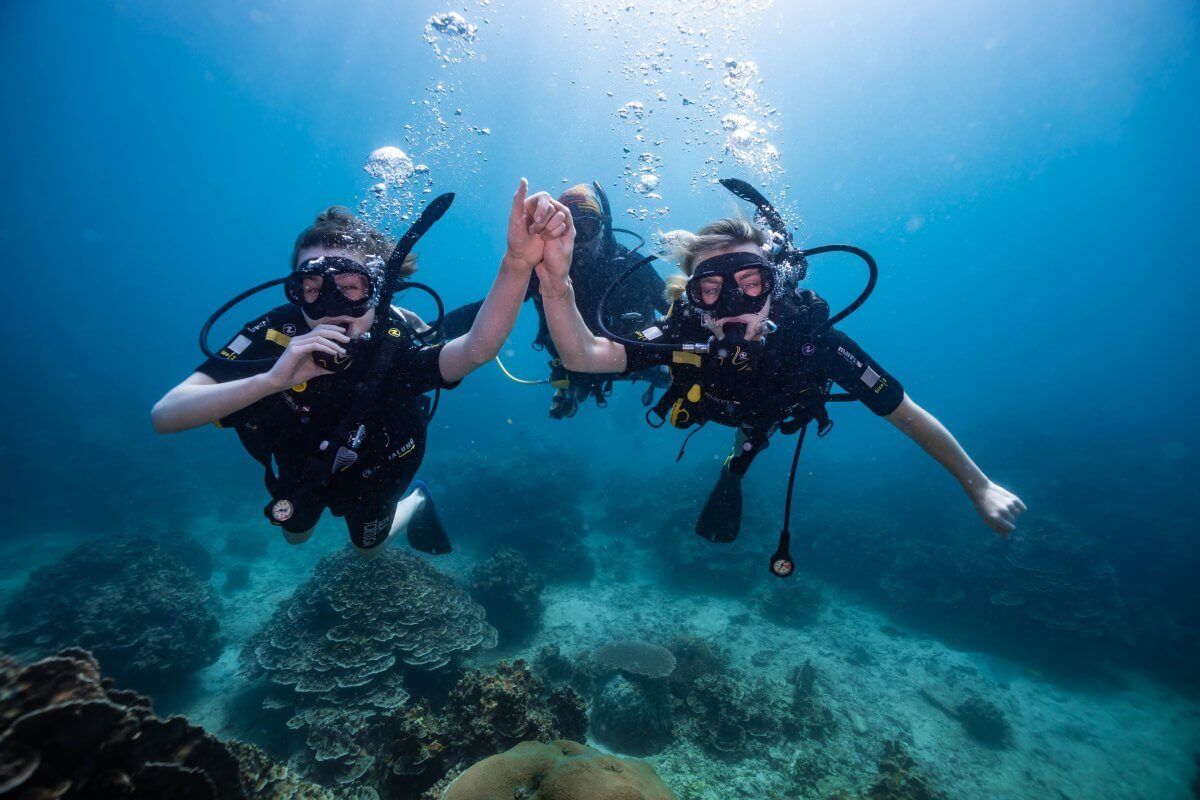The growth of scuba diving has been fueled by improvements in equipment design, safety standards, and global interest in ocean exploration. Modern diving schools and training programs emphasize not only skills but also environmental stewardship, making diving more accessible and safer than before.

Importance
Scuba diving matters today because it connects people with the underwater world in ways that few other activities can. For marine biologists and researchers, it provides direct access to ecosystems for study and conservation. For travelers and adventure seekers, it offers a unique form of exploration that fosters appreciation for marine biodiversity.
Key reasons scuba diving is important include:
-
Environmental Awareness: Divers often become advocates for coral reefs and marine life preservation.
-
Health and Wellness: Diving is linked to stress relief, mindfulness, and physical exercise.
-
Tourism and Local Economies: Popular diving destinations support industries like hospitality, training, and equipment manufacturing.
-
Scientific Contribution: Researchers use diving to collect data, monitor reefs, and study oceanic changes.
Scuba diving also solves the challenge of limited human interaction with the ocean. Without it, our ability to understand marine ecosystems and track climate-related changes would be restricted.
Recent Updates
The scuba diving field continues to evolve with new technologies and shifting trends. In 2024–2025, several notable updates have shaped the diving landscape:
-
Eco-Friendly Equipment (2024): Manufacturers introduced biodegradable wetsuits and eco-conscious gear to reduce marine pollution.
-
Digital Dive Logs (2024): Apps now allow divers to store data on depth, time, and conditions digitally, replacing traditional logbooks.
-
Artificial Reefs (2025): New artificial reef projects in Southeast Asia and the Caribbean attract divers while supporting marine habitats.
-
Health Research (2025): Studies highlight the therapeutic effects of diving on mental well-being, especially for stress and PTSD recovery.
-
Training Innovations: Virtual reality and simulation-based training are gaining traction to prepare beginners before open-water dives.
These updates reflect how scuba diving integrates technology, sustainability, and health awareness.
Laws or Policies
Scuba diving is shaped by international standards and country-specific regulations. These rules ensure diver safety, environmental protection, and responsible tourism.
-
International Guidelines: The World Recreational Scuba Training Council (WRSTC) sets training standards followed by many dive schools worldwide.
-
Environmental Regulations: Marine protected areas (MPAs) restrict diving to safeguard ecosystems. For example, the Great Barrier Reef Marine Park Authority in Australia enforces strict policies on diving activities.
-
Local Licensing: Countries such as Thailand, Egypt, and the Maldives require dive operators to hold special licenses.
-
Safety Rules: Many governments mandate emergency oxygen availability and adherence to maximum dive depth restrictions.
-
Eco-Tourism Policies: In 2025, regions like Indonesia and the Philippines expanded coral reef conservation rules, directly influencing diving practices.
Understanding these policies helps divers remain compliant while supporting marine sustainability.
Tools and Resources
Several tools, apps, and platforms support both new and experienced divers. They provide safety, planning, and knowledge resources.
-
Dive Planning Apps:
-
DiveMate – for tracking dive profiles and logs.
-
Subsurface – open-source dive log software used by recreational and professional divers.
-
-
Safety Tools:
-
Dive computers (Suunto, Garmin, Shearwater) for real-time depth and decompression monitoring.
-
Online dive tables to calculate safe surface intervals.
-
-
Learning Resources:
-
PADI eLearning and SSI Digital Learning for training theory.
-
National Geographic and NOAA websites for marine ecosystem insights.
-
-
Community Forums:
-
ScubaBoard – discussion forum for divers worldwide.
-
Reddit Scuba – peer advice, travel tips, and equipment discussions.
-
| Tool/Resource | Primary Use | Best For |
|---|---|---|
| DiveMate | Digital logbook & planner | Recreational divers |
| Suunto/Garmin | Real-time depth & safety | All skill levels |
| PADI eLearning | Online training modules | Beginners |
| NOAA Database | Marine knowledge & research | Students, experts |
These resources make it easier to prepare, dive safely, and learn continuously.
FAQs
What is the minimum age for scuba diving?
Most organizations set the minimum age at 10 years, though requirements vary by country and certification agency.
Do I need to be a strong swimmer to dive?
Basic swimming ability is required, but advanced swimming skills are not necessary. Divers must be comfortable in water and able to swim a short distance.
Is scuba diving dangerous?
When practiced with proper training and equipment, scuba diving is considered safe. Risks include decompression sickness and equipment failure, but adherence to safety protocols minimizes them.
Can scuba diving improve health?
Yes, diving promotes cardiovascular health, reduces stress, and enhances mindfulness. It is sometimes used as part of wellness programs.
Where are the most popular diving destinations?
Top locations include the Great Barrier Reef (Australia), the Red Sea (Egypt), the Maldives, Belize, and Indonesia. These regions offer rich biodiversity and established diving infrastructure.
Conclusion
Scuba diving is more than just a recreational pursuit it is a bridge between humans and the underwater world. Its importance spans environmental conservation, science, tourism, and personal wellness. Recent innovations highlight the industry’s shift toward sustainability and digital integration, while global regulations ensure safety and marine protection.
For anyone curious about diving, the combination of knowledge, preparation, and respect for the ocean is key. With the right tools, awareness of policies, and access to global resources, scuba diving becomes not only an adventure but also a meaningful way to engage with the planet’s most vital ecosystems.






